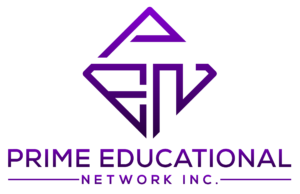This article has been taken from the book ”26 Ignored Rules of Learning English” and has been modified for this post. This book is going to be published soon and becomes available for purchase.
As speaking and listening are the most crucial language skills, it is the main concern of all English learners to improve these skills first. Many English learners complain that after practicing hard for some time, they are still not quite fluent in their speaking. They have also noticed that their listening skills are at best good in familiar situations. So, how can we practice to become more fluent in speaking English and better at listening?
Production is the key
As you all know, there are four skills in each language; reading, listening, speaking, and writing. Two of these skills are production skills because you actually produce something. They are speaking and writing.
Production with speaking
To speak more fluently and remember phrases and the combinations of words better, start the production. Speak and write down your ideas about anything. Start with short sentences and gradually extend them to paragraphs and longer pieces. Speak and write more. As you try to speak and produce ideas, do it loud, of course, not too loud to bother your neighbors!
Producing sentences and ideas is like engraving them on your brain. They stay in your mind for much longer. Besides, when you produce a sentence or an idea, it’s most likely about something that you have seen or experienced. Therefore, you can make a better connection between that idea and the words or phrases in it. Because of that connection, those words stay in your mind better.
Production with listening
You should also try to practice the “production rule” with listening materials too. When you listen to a conversation, say and write down all the sentences and repeat them out loud. If your listening skills are not very well improved, you might be able to understand a conversation for two reasons. First, when you are listening to a conversation, your main focus is on the keywords and phrases but not all the words. Second, because you are familiar with the situation of the conversation, the topic helps you guess the words and ideas. However, it is only at the time of writing or saying those same sentences that you realize you cannot write or say all of them or some details in them.
Why more Practice to improve my speaking fluency and listening?
Now, the questions is if I can focus on only key words to understand a conversation, why should I improve my listening skills further? The answer lies in the second reason you understand conversations in different situations. It is the familiarity with the topic. The truth is that situations are not always familiar to you.
When you are in a new business environment or answering a phone call, you may be completely unfamiliar with the topic. When someone starts a conversation on the street or you are waiting somewhere in a line, you do not know what topics can come up. Even your friends may start talking about something that you have no clue about. So, by the time you get familiar with what they are talking about, you have missed a lot of information. That is why you need to recognize as many words as possible to understand a conversation most accurately. That is where production in listening and speaking come in handy. This practice makes you well-equipped with enough skills to understand words better.
Production makes you more fluent in speaking and better in listening
The time of writing and speaking is the time of production. It is only at the time of producing a sentence that you realize what part of the sentence is something you were missing or not paying attention to. The grammatical structure of the sentence can be something new to you as well. The prepositions or verb tenses are parts that you may be missing. Contractions (such as isn’t, hasn’t, gotta, etc.) are sometimes hard to recognize, and they are extremely common. When you start writing, you learn what the problem is, but if you just want to rely on your understanding of the idea in the sentence, you may never know what you are missing. For example, look at this part of a conversation between Mike and Sara:
Mike: Now Sara, I want you to tell me a little about London. What was your
first experience like upon your arrival in London?
Sara: Oh, it was nothing new. I already expected an awful lot of traffic. You
know just like my own city.
What can happen to you in that conversation?
In this conversation, you know Mike is going to talk about London. You hear the words “first experience” and “arrival”, so, it is not hard to understand what Mike is probably asking. However, you might not pay attention to the word “like” in this sentence. It is not the word you may know (you probably know “like” as a verb similar to “love”). In this sentence, “like” is a preposition with a different meaning. Also, you might not completely recognize that the word you heard was not “arrive”, but “arrival”.
In Sara’s response, you hear, “I already expected an awful lot of traffic”. You can clearly miss the phrase “an awful lot of traffic” Which means “a lot of traffic”. However, as you hear the words “expect” and “traffic”, you can understand what Sara is trying to say, and you feel you have understood the conversation. After this conversation, you know what Mike and Sara were talking about, but you missed some words and phrases. However, if you had tried to say and write down all these sentences, you would have realized that you could not reproduce those sentences accurately as you did not recognize them correctly. Therefore, production (both in speaking and writing) can tell you what you know and what you don’t. Once you start recognizing details, you start becoming more fluent in speaking English and better in listening.
Subscribe to receive more content in your mailbox.



Now I see why after practicing for some years, my progress was slow! Thank you for the article
Awesome! Looking forward to buying your book 😉
Thanks for your comment. Hope the soon-to-be-published book be of use to you and everyone.
Everything is very open with a very clear clarification of the challenges. It was really informative. Your site is extremely helpful. Thank you for sharing!
THANKS FOR VISITING
Usually I don’t learn post on blogs, however I would like
to say that this write-up very pressured me to take a look
at and do so! Your writing style has been amazed me.
Thank you, very nice post.
Thanks for visiting, we are glad these posts can help.